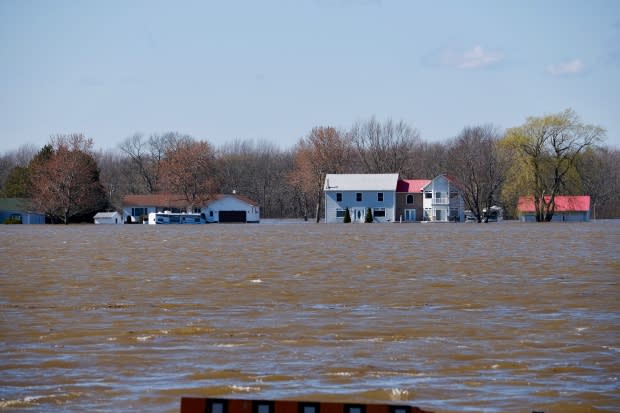Tips for taking control of your finances before another flood hits
It might be months away, but officials are warning the public to start planning for spring flooding — particularly when it comes to their finances.
Last year, New Brunswick was hit with unprecedented flooding that forced hundreds of people from their homes, which can quickly turn into an expensive endeavour.
For months, Kristi Neilsen, a licenced insolvency trustee in Saint John, has seen people come into her office, struggling to keep up with their bills after the 2018 flood.
"That was the original cause and then for months people tried to make ends meet and they just couldn't," said Neilsen, who works for accounting giant Grant Thornton.
The unprecedented flooding meant people lost personal belongings, were forced to take time off work and rebuild what they lost from their homes.
Over time, it's created a financial strain.
Now Neilsen came up with advice to help people and their bank accounts prepare for another flood.
Have a financial cushion

Neilsen recommended people build an emergency savings fund. It should consist of three to six months of income.
It should also be easily accessible. For instance, people would be taxed if they took money out of their RRSP.
"There shouldn't be penalties to get access to that money," she said.
While people already have to pay other expenses each month, she said it's OK to start small, even if that means saving $5 out of each pay.
This will help in case a person loses a day's pay from flooding or needs to repair their homes following flood damage.
Talk to your insurance provider

People should also speak with their insurance provider in advance. This will help them know exactly what's covered and what isn't.
"It's understanding what your coverage is so that you're prepared to have those conversations with your insurance company," she said.
Some insurance companies might be more reluctant to cover costs of flood damage if a resident or business lives in an area prone to flooding.
Tenants can also be impacted by flooding. Neilsen recommended they explore tenant's insurance and what it provides.
And if a resident or business isn't covered, she suggested exploring other insurance options.
Take lots of pictures

Before a natural disaster or any other kind of event, people should also take pictures of their home and belongings inside. This can be used as personal documentation.
"You sort of have your own file documented as to what items you have," she said.
"In the event that something happens, you take pictures right away to show the damage and then you have something to compare it to."
Have a plan in place

At the height of the flood, 2,500 people and 1,070 households registered with the Red Cross
"No one knows yet what this spring will entail," said Bill Lawlor, provincial director with the Red Cross.
Regardless of where a person's home is located, Lawlor said it's easy to be complacent and think your property is not susceptible to disaster.
If it happened once, it can certainly happen again. - Bill Lawlor, provincial director with the Red Cross
He said one of the things people should be discussing now is where they're going to stay should their homes be evacuated. This is particularly important for people with pets or small children.
"One of the things that really caught people off guard with 2018 flood is they didn't know where they were going to go," he said.
If people live in areas susceptible to flooding, they should also have a plan in place for what to do with their belongings inside the basement of their home.
Lawlor used the example of having a furnace or electrical panel inside the basement, which aren't items that can be moved quickly.
"If it happened once, it can certainly happen again," he said.
People still impacted by 2018 flood

There are still five households and 10 people in the greater Fredericton area who haven't moved back into their homes after the flood.
Some are staying with family, friends, neighbours or in commercial accommodations. One family in particular won't be back home until spring.
"Now that the ground is frozen the work by the contractors just simply cannot be done properly," Lawlor said.
Shawn Berry, a spokesperson with the province's Department of Public Safety, advised residents to start getting their 72-hour preparedness kit ready.
It should include water, food, battery-powered radio, flashlight, clothes, cash, backup medication and food for pets.
He said residents should also have an evacuation plan in place if flooding should occur.

